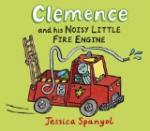’But poor folks, that live in attics, ain’t considered human. I tell you what, though, if Mis’ Way had a seen her children starving, and stole a loaf of bread to save their lives, there would have been a stir about it, and a pile of policemen from here to the corner, to ’enforce the law,’ and they’d have talked in all the churches, about the depravity of the poor in these cities, and then sent another thousand or two to the heathens. The Lord only knows what the world’s a comin’ to.’
‘And the Lord only cares, I don’t,’ said Mrs. Maloney, flouncing off. The honest truth was, she was a little jealous of her more intelligent neighbor, (for human nature is much the same from the garret to the drawing-room.) Mrs. Macarty needn’t think she was talked down, if she did, now and then, get in a word that she had picked up out to service, that the rest of the folks in the block could not understand. One of the Maloney’s, direct from Galway, wasn’t to be put down by any low Irish. She’d go in and see the babies herself, and patronize them too. So, for spite, she took a dish of steaming potatoes, and left little Mike roaring, and went in to have a gossip.
“‘Oh, thank you, Mrs. Maloney,’ said Angel, who was fluttering around, setting the table, ‘this will be so nice for papa—there he comes now.’
“A footstep sounded without, and the man came in, looking haggard and wan. ‘The dirty villain,’ muttered Mrs. Maloney, shuffling past him; but Angel came forward, and smoothed the hot temples, and talked in her pretty, bird-like voice. Two great tears rolled out from the hollow eyes, and a prayer that God must have heard, welled up from the depths of a penitent heart.
“Three peaceful, happy years rolled away. Angel was a tall girl of fifteen, and Mary five. They lived in a little cottage in the outskirts of the town, and the neighbors envied them their contented lot, and even strangers paused to admire their pretty home, and these fair, beautiful children. But sin once more entered their little Paradise. William Way again relapsed into dissipation, and ’the state of that man was worse than before.’ The fire died out upon the hearth stone, and want,




